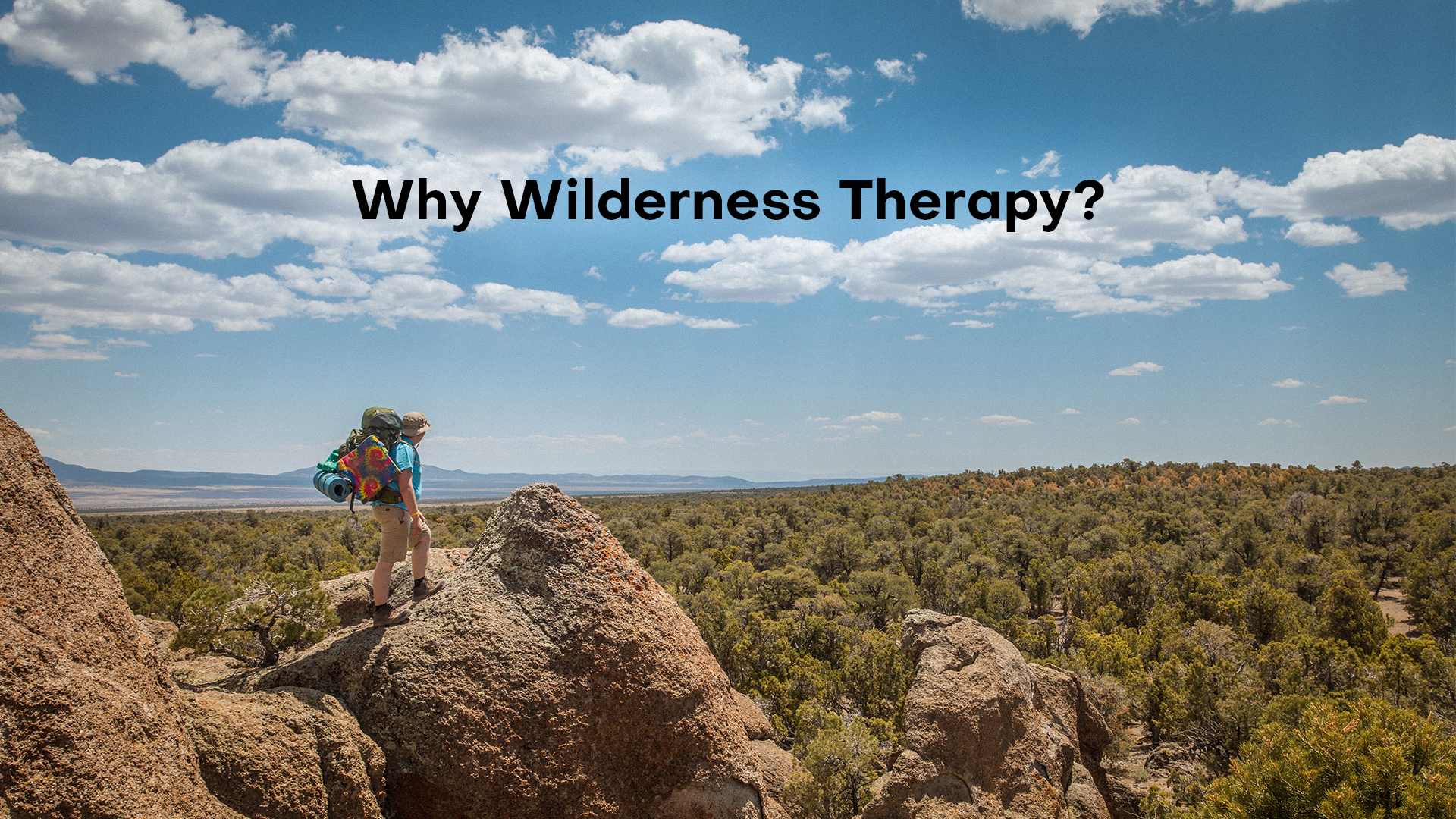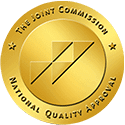
Wilderness Therapy: Trusted Teen Depression Treatment That Works
As a parent, watching your teenager struggle with depression can be heart-wrenching. It's important to find the right treatment option that not only addresses their mental health but also empowers them to grow and thrive.
Wilderness therapy, a nature-focused treatment for teen depression, equips teens with the tools they need to conquer their challenges and live life to the fullest. If your teenager is suffering from depression, wilderness therapy could offer the relief your family needs.
Teen depression is a serious mental health issue that affects many young people in the United States today. It is characterized by persistent feelings of sadness, hopelessness, and a lack of interest or pleasure in activities that used to bring your teen joy. Unlike temporary feelings of sadness, depression is not always tied to a specific event and can last for months or years, making it difficult to manage without professional help.
The CDC reports that among adolescents aged 12-17 years:
- 15.1% had a major depressive episode in the last year.
- 36.7% had persistent feelings of sadness or hopelessness.
- 18.8% seriously considered attempting suicide.
- 15.7% made a suicide plan.
- 8.9% attempted suicide.
- 2.5% made a suicide attempt requiring medical treatment.
And depression doesn't only affect teens, it affects everyone in your family. However, research has shown that depression treatment is VERY EFFECTIVE in helping teens and their families overcome and recover from depression.
Depression is often accompanied by a range of physical, emotional, and behavioral symptoms.
Physical Symptoms of Depression in Teens:
- Changes in appetite and weight: Teens with depression may experience changes in their eating habits, leading to weight loss or weight gain.
- Sleep disturbances: Teens with depression may have trouble sleeping, such as trouble falling asleep, waking up frequently during the night, or sleeping too much.
- Fatigue and low energy: Teens with depression may feel tired and have low energy, making it difficult for them to participate in normal activities.
- Aches and pains: Teens with depression may experience physical symptoms, such as headaches, stomach aches, or muscle pain, without a clear medical cause.
- Slowed movements and speech: Teens with depression may have trouble moving or speaking as quickly or as efficiently as they used to.
Emotional Symptoms of Teen Depression:
- Persistent feelings of sadness, hopelessness, and emptiness: Teens with depression may feel sad, hopeless, and empty for extended periods, even when there is no apparent reason.
- Loss of interest in activities they used to enjoy: Teens with depression may lose interest in activities that they once enjoyed and may have difficulty finding pleasure in life.
- Feelings of worthlessness or guilt: Teens with depression may feel worthless, guilty, or inadequate, even when there is no clear reason for these feelings.
- Difficulty concentrating or making decisions: Teens with depression may have trouble focusing, paying attention, or making decisions.
- Irritability or anger: Teens with depression may become easily irritated or angry, even over minor issues.
- Anxiety or worry: Teens with depression may experience anxiety or worry, even when there is no clear cause.
- Thoughts of suicide or self-harm: Teens with depression may have thoughts of suicide or may engage in self-harm behaviors.
- Crying spells or tearfulness: Teens with depression may cry frequently or feel tearful for extended periods, even when there is no apparent reason.
- Feeling numb: Teens with depression may feel emotionally numb, detached from their feelings and unable to connect with others.
- Sensitivity toward being rejected or failing: Teens with depression may be extremely sensitive to rejection or failure and may have trouble handling disappointment or setbacks.
- Overly apologetic: Teens with depression may feel the need to apologize excessively, even when they have done nothing wrong.
- Perfectionism: Teens with depression may become excessively perfectionistic and may have trouble accepting even minor flaws or mistakes.
- Change or shift in personality: Teens with depression may experience a shift in their personality and may seem like a different person than they used to be.
- Wearing a happy mask or having "smiling depression": Teens with depression may put on a happy face and pretend that everything is fine outside the home, even though they're struggling on the inside.
- Forgetfulness: Teens with depression may have trouble remembering things and may have difficulty concentrating.
- Extremely low tolerance for discomfort: Teens with depression may have an extremely low tolerance for discomfort and may become overwhelmed by even minor stressors.
Exaggerated self-blame or self-criticism: Teens with depression may be overly self-critical, blaming themselves for everything that goes wrong, even when it's not their fault. - Poor future outlook: Teens with depression may have a pessimistic outlook on the future and feel as though things will never get better.
- Excessive worrying or rumination: Teens with depression may spend excessive amounts of time worrying or ruminating over negative thoughts and experiences.
Behavioral Signs of Depression in Teenagers:
- Withdrawal from friends and family: Teens with depression may withdraw from social activities and avoid spending time with friends and family.
- Changes in school performance: Teens with depression may have trouble focusing in school and may experience a decline in their grades.
- Aggressive or defiant behavior: Teens with depression may become defiant, aggressive, or engage in other disruptive behaviors.
- Self-harm: Teens with depression may engage in self-harm behaviors, such as cutting or burning themselves.
- Engaging in risky behaviors: Teens with depression may engage in risky behaviors, such as reckless driving or unprotected sex, in an attempt to alleviate their feelings of sadness and hopelessness.
- Agitation or restlessness: Teens with depression may exhibit signs of restlessness or agitation, such as pacing, fidgeting, or being unable to sit still.
- Decreased self-care and attention to personal hygiene or appearance: Teens with depression may neglect their personal hygiene and appearance and may not take care of themselves as they used to.
- Technology overuse: Teens with depression may spend excessive amounts of time using technology, such as playing video games, watching videos, or using social media, in an attempt to escape from their feelings.
- Significant change of friend group: Teens with depression may experience a significant change in their friend group and may have trouble connecting with others.
It's important to remember that these symptoms can vary from person to person, and not everyone with depression will experience all of these symptoms. It's important to remember that these symptoms can also be indicative of other physical or mental health conditions, so it's best to a mental health professional who specializes in teen depression. If you're concerned about your teen's mental health, please seek a professional evaluation.
You Are Not Alone
RedCliff Ascent is there for you and your family.
Types of Depression in Teens
Depression is not a one-size-fits-all condition, and understanding the different types of depression can help teens get the tailored support they need to overcome their struggles.
Here are the most common types of depression in teens:
- Major depressive disorder: This is a persistent feeling of sadness and loss of interest in activities that the individual used to enjoy. It can also include symptoms such as changes in appetite, sleep patterns, and energy levels.
- Persistent depressive disorder (dysthymia): This type of depression is characterized by a persistent, low-level depression that lasts for at least two years.
- Bipolar disorder: This is a condition in which a person experiences episodes of both mania and depression. In teens, this condition can often be misdiagnosed as just depression.
- Seasonal affective disorder (SAD): This is a type of depression that occurs at the same time each year, usually in the fall or winter.
- Atypical depression: This type of depression is characterized by symptoms such as increased appetite, excessive sleepiness, and sensitivity to rejection.
- Situational depression: This type of depression is caused by a specific event or situation, such as the death of a loved one, a breakup, or a significant change in one's life.
- Treatment-resistant depression: This is a type of depression that does not respond to standard treatments, such as therapy or medication.
- Premenstrual dysphoric disorder (PMDD): This is a severe form of premenstrual syndrome (PMS) that can cause depression, irritability, and other symptoms in the week or two before a woman's menstrual period.
It's important to note that depression can also be a symptom of other mental health conditions, such as anxiety disorders or eating disorders. Additionally, some teens may experience depression as a result of physical health problems or life events like the death of a loved one, a move, or a breakup.
Signs Your Teen May Need Depression Treatment:
- Isolating From Peers or Family
- Codependency/Unhealthy Relationships
- Difficulties with School
- Difficulty in Parent or Sibling Relationships
- Overuse of Technology or Social Media
- Victim of Bullying or Another Traumatic Event
- Suicidal Thoughts or Self-harm
- Non-responsive to Outpatient Therapy
- Recommendations from Mental Health Professionals
Causes of Depression in Teens
The source of depression and mental illness is still unknown, though various factors have been identified as contributing to its occurrence. Some factors that can contribute to depression in teenagers include:
- Biological & genetic factors: Depression may be caused by imbalances in neurotransmitters, the chemicals in the brain that regulate mood. It may also run in families, suggesting a genetic component to the condition.
- Psychological factors: co-occurring mental health conditions like ADHD and anxiety, as well as factors like low self-esteem, negative thinking patterns, and traumatic life events can all contribute to depression in teenagers.
- Environmental factors: Poor sleep, lack of physical exercise, and a diet that is high in processed foods and low in nutrients can all contribute to the development of depression. Also, living in a high-stress environment or experiencing major life changes, such as a death in the family, can increase the risk of depression in teens.
- Medical conditions: Certain medical conditions, such as a thyroid disorder or chronic pain, can contribute to depression.
It's important to note that depression is often caused by a combination of these factors and that every individual's experience with depression is unique.
Current Research on the Causes of Depression:
To further our understanding of what causes depression and mental illness, research is currently exploring the following fronts (among others):
- Inflammation - Inflammation has been linked to depression as a possible contributing factor. Chronic inflammation can cause elevated levels of inflammation markers in people with depression, which can be improved with anti-inflammatory medications. This suggests that inflammation may play a role in depression by altering neurotransmitter levels and disrupting brain regions that regulate mood. However, depression treatment often requires addressing both biological and psychological factors, and more research is needed to fully understand the relationship between inflammation and depression.
- Nutrition - a diet that is high in processed foods and low in nutrients can contribute to the development of depression. For example, low levels of vitamins and minerals, such as folate, iron, and omega-3 fatty acids, have been linked to depression, and a diet that is high in sugar and unhealthy fats has been shown to worsen symptoms of depression.
- Gut Microbiome - The gut microbiome is the community of microorganisms that live in the digestive tract, and research suggests that these microorganisms may have a significant impact on both physical and mental health. Studies have shown that people with depression often have imbalances in their gut microbiome and that changes in the gut microbiome can lead to changes in neurotransmitter levels, inflammation, and other physiological processes that can affect mood.
- Metabolism - mitochondria are the energy-producing structures in our cells, and research suggests that impairments in mitochondrial function may contribute to the development of depression and other mood disorders. Studies have shown that teenagers with depression often have impairments in mitochondrial function and energy metabolism and that treatments aimed at improving mitochondrial function can improve symptoms of depression.
While more research is needed to fully understand the relationship between these factors and depression, these findings highlight the importance of considering a holistic approach to depression treatment that considers both biological and environmental factors, including dietary and lifestyle changes
If you or someone you know is experiencing symptoms of depression, it's important to seek help from a mental health professional, as early treatment can lead to a better outcome.
Importance of Early Intervention for Teen Depression
Depression can have a profound impact on the lives of teens, affecting their mental health, daily functioning, and overall well-being. However, there is good news: early intervention can make a significant difference. By addressing depression as soon as possible, teens can receive the support they need to manage their symptoms, reduce the impact of depression on their lives, and reap a range of benefits.
Early intervention for teen depression can provide numerous benefits, including:
- Improved Outcome: Early treatment can lead to a more favorable outcome and a quicker recovery. Research shows that early intervention can help prevent teen depression from becoming a chronic condition.
- Better Mental Health: Early treatment can help improve overall mental health, reduce symptoms, and prevent future episodes of depression.
- Improved Functioning: Early intervention can help improve functioning in daily life, including in school, at home, and in relationships with friends and family.
- Increased Coping Skills: Early intervention can provide teens with the tools and coping skills they need to manage their depression, reducing the impact of depression on their daily life.
- Improved Quality of Life: By reducing symptoms and improving overall mental health, early intervention can greatly improve the quality of life for teens with depression.
Early recognition and treatment can help teens get the support they need to manage their depression and improve their overall well-being. By addressing depression early, teens can learn healthy coping skills and avoid the negative impact that depression can have on their lives.

Not Seeking Depression Treatment Can Be Harmful The Effects of Untreated Depression on Teens
Untreated depression can have serious and long-lasting effects on a teenager's life and their family. Some of the key effects include:
- Academic struggles: Depression can make it difficult for teens to concentrate and do well in school, leading to poor grades and a decrease in their motivation to attend classes. In the long term it can affect academic and career opportunities.
- Social isolation: Teens with depression may struggle to form and maintain relationships, which can cause them to feel lonely and isolated.
- Strained relationships: Depression can cause teens to become irritable, argumentative, and withdrawn, leading to conflicts with family and friends.
In addition to affecting the individual, untreated depression can also take a toll on the family. Family members may become frustrated and overwhelmed by the changes they see in their loved one and the impact the depression has on their own lives. The stress and strain on relationships can cause further emotional harm and strain to everyone involved.
Untreated depression can also have a significant impact on identity development in teenagers. The teenage years are a critical time for young people as they work to understand who they are and what they want to be. Depression can disrupt this process by affecting the way a teen perceives themselves and the world around them.
Without proper treatment, depression can lead to a negative self-image, low self-esteem, and a sense of hopelessness. These feelings can cause a teenager to disengage from activities and relationships that were once important to them, and cause them to feel isolated and disconnected from the world around them.
Moreover, untreated depression can affect the way a teenager perceives their future and their goals. They may feel as though their future is limited or that they cannot achieve their dreams. This can have a negative impact on motivation and aspirations, and make it more challenging for the teenager to envision a positive future for themselves.
Early Intervention Is Important For Depression Recovery
Early intervention and treatment can greatly benefit families of teens struggling with depression by providing the tools, resources, and support necessary for the teen to effectively process their feelings and emotions, and manage their depression. Providing a safe and supportive environment for the teen to heal can also improve family dynamics and strengthen family bonds.
Early intervention also helps parents and families learn coping skills and healthy ways to manage their own emotions, which can lead to better mental health outcomes in the future. By addressing teen depression early on, families can build resilience and learn to navigate life's challenges together in a healthy and effective way, promoting positive outcomes and reducing the impact of this serious problem.
Teen Depression Treatment: What Are Your Options?
There are several treatment options available to parents of teens struggling with depression:
- Outpatient therapy: This type of therapy involves regular sessions with a mental health professional, typically once a week or more.
- Day treatment: Day treatment programs provide intensive therapy and support for teens but allow them to return home at night.
- Inpatient treatment: Inpatient treatment involves hospitalization for a period of time, typically 1-2 weeks, and provides 24/7 supervision and care.
- Residential treatment: Residential treatment programs provide round-the-clock care in a therapeutic and structured environment, typically lasting several months.
- Wilderness therapy: This type of therapy combines traditional therapy with outdoor activities, such as hiking and camping, and can be a highly effective form of treatment for teens struggling with depression.
The type of depression treatment that is most appropriate for a teen will depend on the severity of their symptoms, their underlying mental health conditions, and other factors. It is important to consult with a mental health professional to determine the best course of action.
What is Wilderness Therapy?
Wilderness therapy is a type of depression treatment for teens that uses nature, wilderness activities, and therapy as a means to address and heal depression. Wilderness therapy takes full advantage of the outdoors and its ability to foster change. The outdoors provide teens with a contrasting environment to observe aspects of themselves that are often overlooked in traditional talk therapy.
As the leader in wilderness therapy, RedCliff Ascent is an effective treatment program for struggling teens aged 13-17. RedCliff Ascent’s safe, nurturing, and supportive environment provides teens the skills they need to cope in a healthy and age-appropriate way.

Benefits of Wilderness Therapy for Teens with Depression
Being immersed in nature can have a profound impact on a teenager. It improves their mental, emotional and physical health. When combined with a research-backed clinical approach, a therapeutic wilderness experience helps teens heal from depression. Here are five specific benefits your family can expect to see while your teen is in wilderness therapy.
Depression is often a symptom of deeper mental health struggles rather than the cause of them. Research indicates accurate mental health assessments can lead to a 20% reduction in treatment.
Wilderness therapy provides a novel and challenging environment that disrupts the unhealthy patterns that cause your teen's depression or are a result of your teen's depression.
Teens living with severe depression often struggle to engage in ongoing treatment and have very high dropout rates. Poor engagement may lead to worse clinical outcomes, with symptom relapse and rehospitalization. Our research shows that even teens who have been resistant to therapy engage in the process while in wilderness therapy.
RedCliff Ascent’s safe, nurturing, and supportive environment provides teens with the social and emotional learning skills they need to re-engage in healthy development.
If you're like most parents, you don't want to just get rid of your teen's depression. You want them to eventually become thriving, independent adults equipped with the skills necessary to be successful outside your home. These include:
Resilience - the ability to successfully adapt to challenging situations despite risk and adversity. Resilience helps us develop social competence, problem-solving skills, critical consciousness, autonomy, and a sense of purpose.
Leadership & Social Competence skills include qualities such as:
- responsiveness, especially the ability to elicit positive responses from others;
- flexibility
- empathy
- communication skills
- and a sense of humor.
Problem-solving skills - the ability to plan; to be resourceful in seeking help from others; and to think critically, creatively, and reflectively.
Autonomy is having a sense of one’s own identity and an ability to act independently and to exert some control over one’s environment, including a sense of task mastery, internal locus of control, and self-efficacy. The development of resistance (refusing to accept negative messages about oneself) and of detachment (distancing oneself from dysfunction) serves as a powerful protector of autonomy.
Sense of Purpose and a belief in a bright future, including goal direction, educational aspirations, achievement motivation, persistence, hopefulness, optimism, and spiritual connectedness.
98% of students report feeling connected to RedCliff's staff and one or more of their peers.
Upon completion of the program, 86% of parents reported improvement in their child's problems when compared to when they entered
12 months after treatment 86% of parents reported that their child's problems are improved since they completed treatment
How Does Wilderness Therapy Work?
RedCliff Ascent has helped teens with depression for almost 30 years and has conducted research since its inception. Through our research, we have identified seven principles that actually make a difference in helping your whole family recover from your teen's depression.

Healthy relationships are not only the foundation for growth and development but the launchpad for a successful future as well.
Your teen will live in a small group where social influence and feedback can be given and received in a safe and supportive way. This safe environment teaches your teen to build healthy relationships with both their peers and mentors. Having the skills to make and keep healthy relationships is essential to overcoming depression.
Depression treatment is most effective when it is responsive to your teen’s specific struggles, strengths, personality, sociocultural context, and preferences. Our evidence-based treatment approach combines decades of research and clinical expertise to personalize a treatment plan that fits your teen’s unique struggles, characteristics, culture, and preferences.
One common theme in feedback from RedCliff Ascent’s students is that the challenging and novel environment provided them with a new perspective on their life and everything they knew before wilderness therapy.
Novel physical environments are a place of contrast that confront the world views your teen takes for granted. This helps your teen to see with a fresh perspective and see new options available to them. Growth occurs outside of the comfort zone and is accelerated in environments that push physical and mental limits.
Your teen's depression didn't develop in isolation, it affects everyone in your family. The healing process should apply to your whole family as well. Parental involvement and family support during treatment greatly increase your teen’s progress in treatment and helps them to adapt after treatment.
Communicating through handwritten letters provides a novel and powerful way to work through your family's struggles. You will also have access to our parent resource library, a weekly support call with other parents like you, as well as a weekly session with your child's therapist.
Your teen's depression fills every aspect of their life. The best depression treatments must treat every part of their life as well. They use a holistic and integrated approach so that every aspect of your teen's life can heal from depression. In our treatment program, mentors, therapists, doctors, nurses, academic directors, nutritionists, and everyone on your teen's treatment team will meet together each week to discuss how to best help your child.
Depressed teens struggle to believe in themselves. By teaching basic primitive living skills, teens gain a confidence in themselves that carries on to all aspects of their lives. By knowing that they are able to survive in nature, teens thrive at home, in school, and in their relationships.
A ceremony is a powerful tool that can change your teenager's life. A ceremony is a community celebration or commemoration often having symbolic importance to the people performing it. A ceremony recognizes your teen's inner growth and experiences and attaches it to a physical symbol that your teen can take with them. A ceremony can help your teen validate and internalize the growth they have achieved.
Exclusionary criteria for RedCliff Ascent include:
- Teens younger than 13 and older than 17.5
- Teens with a physical limitation, i.e. wheelchair, crutches, etc.
- Teens with conditions that need intensive medical care or monitoring, i.e. eating disorders, diabetes, etc.
- Teens with a history of violence or sexual assault
- Teens with psychosis or schizophrenia
RedCliff Ascent does not take Medicare or Medicaid.
What Our Clients Say About RedCliff Ascent
I’d like to let you know how delighted I am with the RedCliff program and how impressive the hard work and dedication of the staff is...We feel that your program has very probably saved this child’s life and given us back our son.
- Kathy
We are very pleased with [our daughter's] self-improvements. A year ago we would not have dreamed all this to be possible! The path she head down was self-destruction. The impact of the RedCliff program is what turned [her] around. Our headstrong daughter was able to take stock of her past behavior, deal with her anger towards us, and begin to move in a more positive direction.
Even though sending her to RedCliff was a gut-wrenching decision, we know we did the right thing. We are thankful for the help and insight you gave to her and us.
- Clark and Irene
Since [our son] went to RedCliff we have all been transformed, but none as much as he. All of his teachers had nothing but good things to say about him. There have been no behavior issues at school this year. As a matter of fact, his teachers stated that they would like it if they had more students like Rob in their classes. I cried again at this meeting, but this time they were tears of joy.
- Julie


Backed by The Joint Commission which ensures programs adhere to the highest quality of clinical and medical practices.

Designated as a NATSAP Research Program, showing our commitment to well-researched practices in our program.

We are also OBH Accredited through the Association of Experiential Education (AEE) which regulates wilderness therapy practices.

Full member of the National Association of Therapeutic Schools and Programs (NATSAP), which ensure regulation of programs that serve children and adolescents.

RedCliff Ascent is fully licensed in the state of Utah.

Backed by the Association of Experiential Education (AEE) that ensures programs maintain appropriate professional behavior and risk management.

Founding member of the OBH Council (Outdoor Behavioral Healthcare Council).

Founding member of Choose Mental Health, guiding families with questions about mental health.
Every teen’s strengths and challenges are different. Complete the no-obligation teen depression assessment below to help us understand your family’s needs.
We respect your privacy and will never share your information.
We’re here to help - take the first step and contact us to see if wilderness therapy could be the path to healing for your family.
